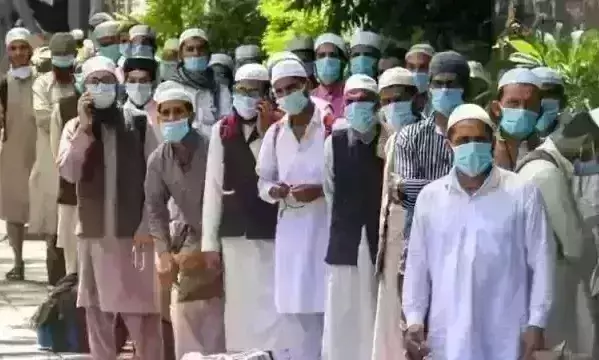
CJI's remarks validates our point in Tablighi case: Madani
text_fieldsNew Delhi: Jamiat Ulama-i-Hind President Arshad Madani said on Thursday that Chief Justice of India SA Bobde's observations while hearing the Muslim body's plea earlier in the day had "validated its contention that the media did not act responsibly in Tablighi Jamaat Markaz case".
The JuH had petitioned the court against several TV channels and print media outlets for allegedly linking the spread of coronavirus with the congregation of Jamaat followers at its Nizamuddin headquarters in February 2020 and thus deliberately conspired to tarnish the image of Muslims, especially those from the Jamaat, and to spread hatred between the Hindus and Muslims.
"What we have been saying since day one on this matter has been reiterated by the Chief Justice of India in his comments that he is not against anyone's right to speak, nor they are in favour of banning anyone from speaking, but they are against the fake news published in media and the way in which an individual or a sect is targeted," Madani said.
He lamented that unfortunately for the last few years, the media, especially the electronic media, had been "deliberately" doing all this to provoke heated debates and harass a particular community, and trying its best to convince the people that what they said or showed was true, as was the case with the Tablighi Jamaat.
"We too are not against the freedom of speech, but we want that what the biased media is showing nowadays is not only against the Constitution and laws of the country, but also hurtful to a certain section of society. And today's comments by the Chief Justice make it clear like a crystal that our position is 100 per cent correct," the Muslim leader added.
Hearing a JuH petition against what it called "fake and motivated news" disseminated during the Jamaat congregation in February 2020, the Supreme Court cited the Internet ban as a preventive measure to contain violence which was also done by authorities during the farmers' protest in Delhi on January 26.
A bench headed by the Chief Justice emphasised that at some point in time, the central government has to control news and cited the suspension of Internet services in various parts of the national capital following violence on Republic Day.
The Chief Justice emphasised that "fair and truthful reporting is normally not a problem; but the problem begins when it is used to agitate others and target a particular community".























